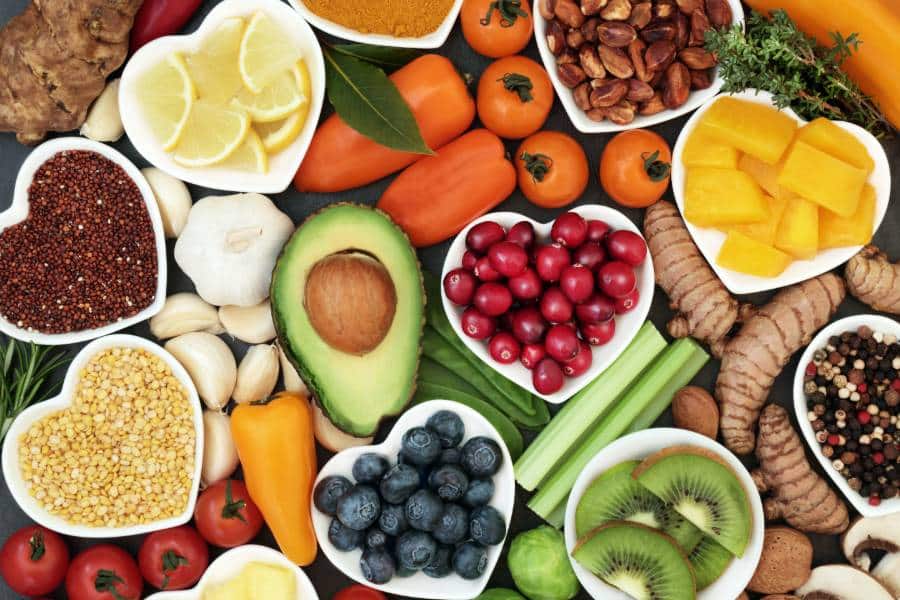The gut-brain axis: explained
Learn about the gut-brain axis and why it is important to keep your stomach healthy for your brain to keep functioning at its best.
To follow one’s gut feeling is an age-old counsel of wisdom. However, only recently have scientists found evidence of the strong connection our brains share with our respective guts.
Although the gut-brain axis is a major area of study and interest in neuroscience, it was taken less than seriously when back in 2006 the neuroscientist Jane Foster first proposed it.
She faced multiple rejections over a number of years before her research was reviewed and published.
Foster’s research resulted in thousands of papers on the subject being published over the next decade or so.
Even with the staggering amounts of evidence already discovered, scientists and other experts in the field are still hard at work every day exploring the complex connection the brain shares with the gut.
The gut-brain connection is indeed strong, and each organ holds serious influence over the other.
Check your body's vitamin status

What is the gut-brain axis?
Our respective guts and brains are able to communicate with each other using a highly complex network of nerves. In addition, they are biochemically linked. This nervous and biochemical network that goes from the brain to the gut helps one influence the other in terms of health and function. The intricate connection system shared by the gut and the brain is referred to as the gut-brain axis.
The gut-brain axis is a two-way connection:
- When your gut is upset or acting up, it can have an impact on your mood; for instance, you may feel anxiety when your stomach is unwell
- How you are feeling can also impact your gut health; for example, chronic stress in many people triggers IBS (irritable bowel syndrome)
As this is a relatively new field of study and the gut-brain connection is so sophisticated, it is sometimes difficult to determine if the brain or the gut is the cause of any particular issue.
Therefore, in order to keep your brain health in top shape, experts recommend ensuring that your gut microbiome is receiving attention and care.
Gut microbiome and the gut-brain axis
On average, a human body is home to trillions of bacteria, fungi, and other microorganisms – collectively, they are known as the microbiome. Although bacteria are commonly associated with diseases and ill health, not all bacteria are harmful. In fact, some bacteria are quite essential for various aspects of bodily function.
The microorganisms, or microbes, like bacteria and fungi, that are found in your stomach, are referred to as the gut microbiome. The gut microbiome consists of over 1000 diverse species of good bacteria. In fact, the more diverse, the better it is for your health.
A healthy gut microbiome is very important for your gut health and, in association, your brain.
Particular species of bacteria in your gut microbiome are capable of producing chemicals that are beneficial to the brain. For instance, serotonin is produced in the gut – an antidepressant required by the brain to regulate mood.
Furthermore, according to research, the gut microbiome plays an important role in maintaining the gut-brain axis. Basically, the overall health of the nervous and biochemical connection of the gut and brain is reliant on a healthy gut microbiome.
Research has also shown that people who have psychological disorders have a different set of bacterial species in their gut microbiome compared to people without the respective psychological disorders.
Keeping the gut microbiome healthy is highly vital for the gut-brain axis and your overall wellbeing.

Maintaining a healthy gut-brain axis
A healthy gut is the way to a healthy brain and, in turn, a healthy life. Therefore, it is vital to be mindful of what you consume. Here are some changes you can bring about in your eating habits to sustain a healthy gut-brain axis:
- Include lots of high-fibre foods in your diet
Things like whole grains, fruits, vegetables, nuts, and seeds are high in prebiotic fibres that are highly beneficial for your gut microbiome. Prebiotics also help reduce stress hormones. - Eat food containing Omega-3 fats
Omega-3 fats are found in various types of food, such as oily fish. Omega-3 fats help keep the good bacteria levels in your gut high and lessen brain disorder risks. - Eat fermented foods
Yoghurt, cheese, and kefir are all rich in healthy microbes. Fermented foods tend to have a positive impact on brain activity. - Consume foods containing polyphenols
Polyphenols improve gut bacteria levels and can also enhance cognition. Examples of foods containing polyphenols include coffee, green tea, and olive oil. - Consume foods rich in tryptophan
Turkey, cheese, and eggs all contain tryptophan. It is an amino acid that is used to produce the antidepressant neurotransmitter serotonin.
While it is important always to maintain a healthy and diverse diet, not just for your gut-brain axis but for your overall wellbeing, it is also vital to keep tabs on how your body is functioning. For that, you can use VIVO Clinic’s General Health MOT.
The blood test will help you identify where your body requires the most attention and what you may be able to do to improve your health.
Know your body better
Women’s Health MOT
£206.00A blood test that covers all the essential areas of overall female health.
Men’s Health MOT
£196.00The ideal blood test for men that provides an overall view of their general wellbeing.
General Health MOT
£136.00A simple blood test that helps rule out an expansive list of health conditions.
Related Articles

14 common vitamin D deficiency symptoms
Vitamin D deficiency is an alarmingly widespread condition in the UK, with 1 out of 6 adults surveyed having low...
4 Easy Ways to Boost Your Metabolism
Want to lose weight and keep it off? Have you tried every diet out there, but nothing works? If so,...
Are Covid-19 vaccines going to waste?
There have been reports that Covid-19 vaccines have been going to waste on a daily basis. While this is technically...1,000,000
Customers
Felt so comfortable and welcome. Explained in detail about my treatment and took the time to interact.
Very professional and friendly. The HIFU treatment was very comfortable and I felt relaxed.
Have more appointments booked so looking forward to my next visit.
Thank you again you are absolutely fantastic 😀
She was very attentive and knowledgeable
 close
close











